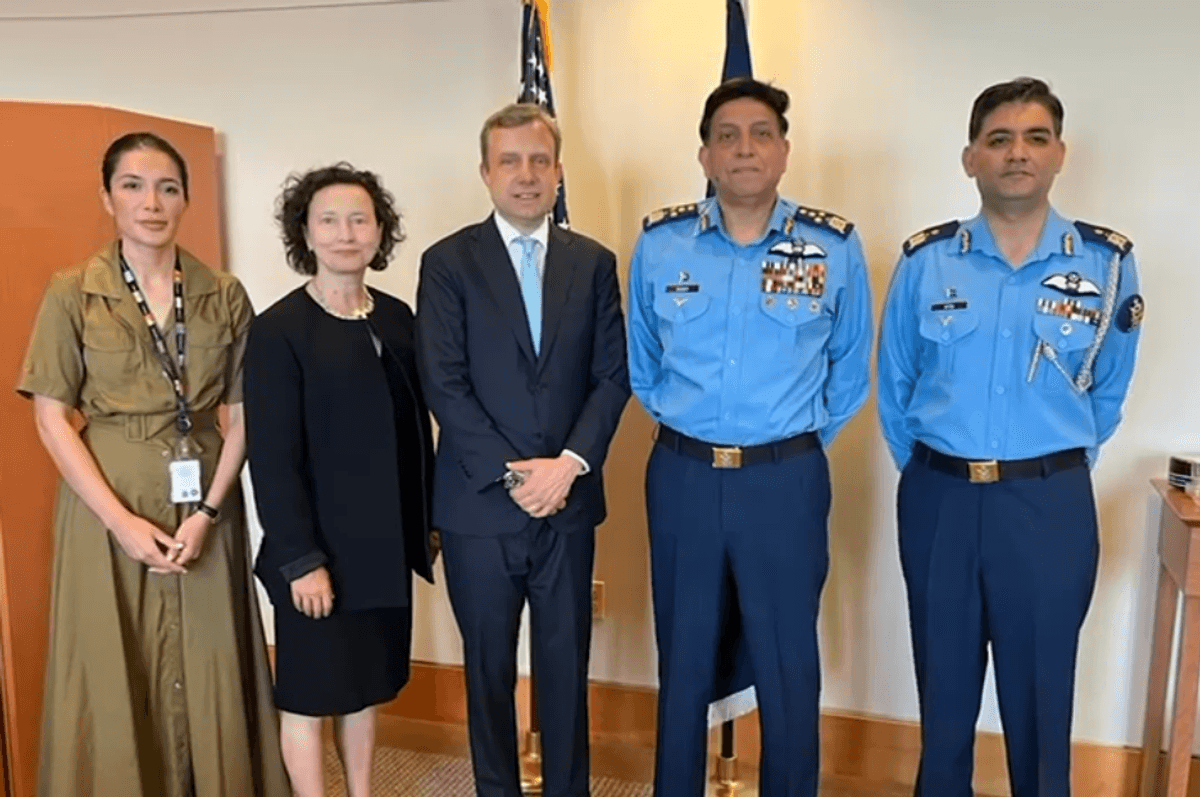Pakistan air chief visits US, holds talks on security and military ties
The meetings focused on enhancing military cooperation, interoperability, and joint training and technology exchange
News Desk
The News Desk provides timely and factual coverage of national and international events, with an emphasis on accuracy and clarity.

Air Chief Marshal Sidhu highlighted the longstanding, multifaceted Pakistan-U.S. ties, especially in defence and security.
ISPR
In a visit aimed at strengthening defence ties and advancing mutual strategic interests, Pakistan’s Air Chief Marshal Zaheer Ahmed Baber Sidhu undertook an official trip to the United States -- the first by a serving Pakistan Air Force (PAF) chief in over a decade, according to the Inter-Services Public Relations (ISPR).
The high-level engagements marked a significant milestone in Pakistan-U.S. defence cooperation and were instrumental in strengthening institutional linkages and addressing key regional and global security concerns.
The ISPR said the chief of the air staff held a series of high-level meetings with senior U.S. military and political leaders. At the Pentagon, he met with Kelli L. Seybolt, Secretary of the Air Force (International Affairs), and General David W. Allvin, Chief of Staff of the United States Air Force.
Discussions during these meetings focused on advancing bilateral military cooperation, improving interoperability, and exploring opportunities for joint training and technology exchange.
Air Chief Marshal Sidhu emphasized the long-standing and multifaceted nature of Pakistan-U.S. relations, particularly in the spheres of defense and security cooperation.
He reaffirmed his commitment to further strengthening military-to-military ties and training collaborations between the two air forces. Both sides agreed to maintain the momentum of high-level engagements through future senior-level interactions, which they deemed essential for continued progress in joint training, operational exercises, and military exchange programs.
At the U.S. State Department, the air chief held discussions with Brown L. Stanley from the Bureau of Political-Military Affairs and Eric Meyer from the Bureau of South & Central Asian Affairs. The ISPR said the meetings provided a platform to highlight Pakistan’s constructive role in promoting regional stability, its steadfast commitment to counterterrorism, and its nuanced understanding of the shifting geopolitical dynamics in South and Central Asia.
The visit also included key engagements at Capitol Hill, where the air chief met with prominent members of the U.S. Congress, including Mike Turner, Rich McCormick, and Bill Huizenga. These dialogues reinforced the value of sustained engagement for strengthening bilateral ties and offered Pakistan an opportunity to share its perspectives on strategic challenges, regional security architecture, and the influence of emerging technologies on defense cooperation.
Reiterating Pakistan’s identity as a peace-loving nation, Sidhu underlined the country’s significant sacrifices and operational successes in the global war on terror. He also shared Pakistan’s evolving security outlook in light of changing regional dynamics.
The visit, described as a milestone by ISPR, not only reaffirmed the PAF’s commitment to regional and global peace, but also laid the groundwork for renewed institutional collaboration, strategic dialogue, and enhanced interoperability between the Pakistan Air Force and the United States Air Force.







Comments
See what people are discussing